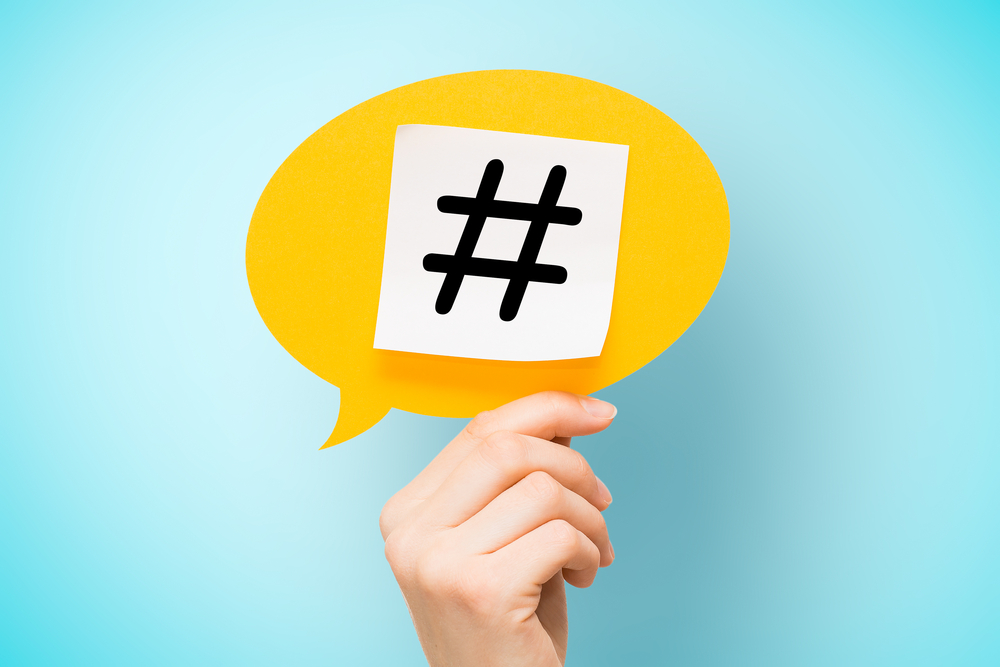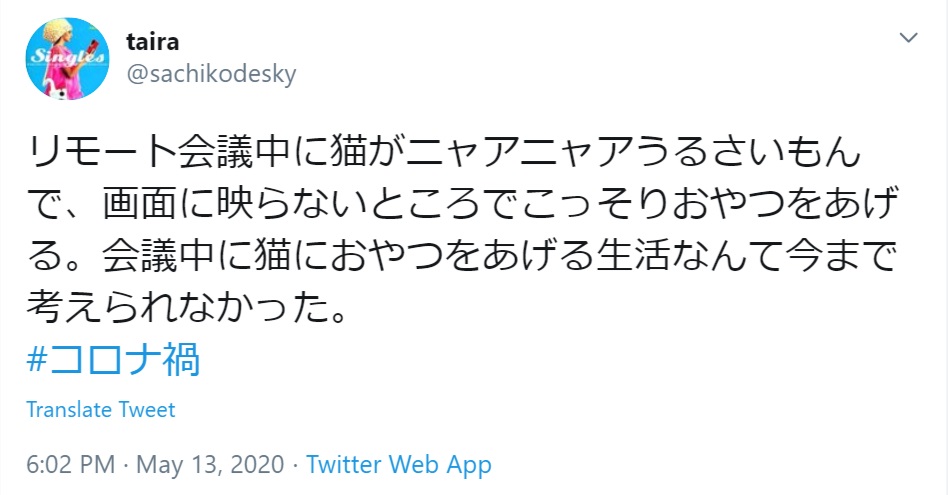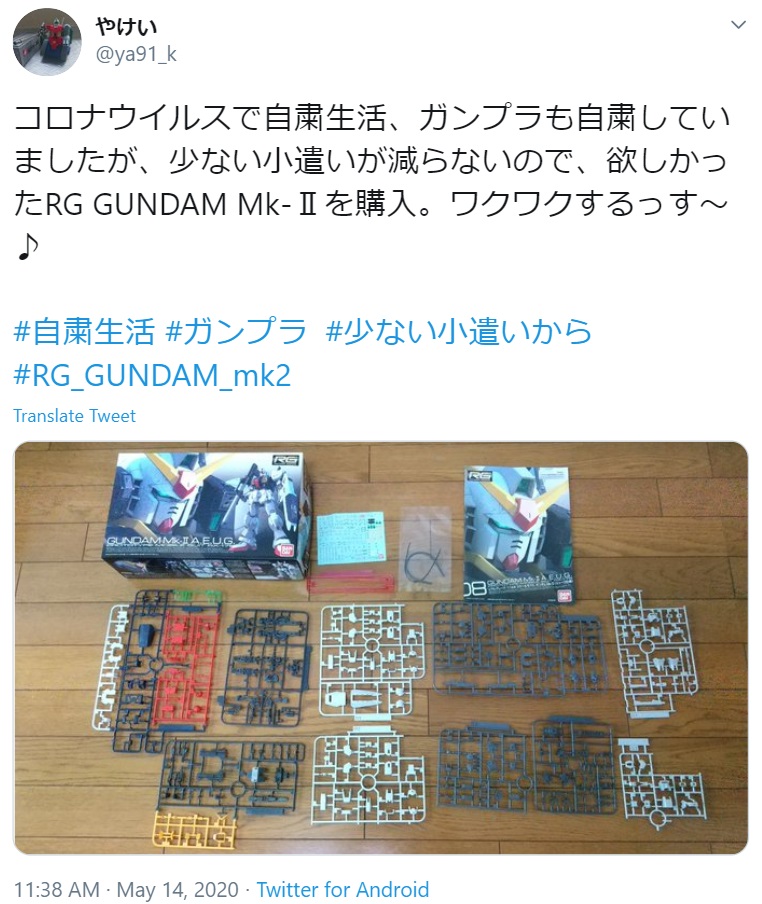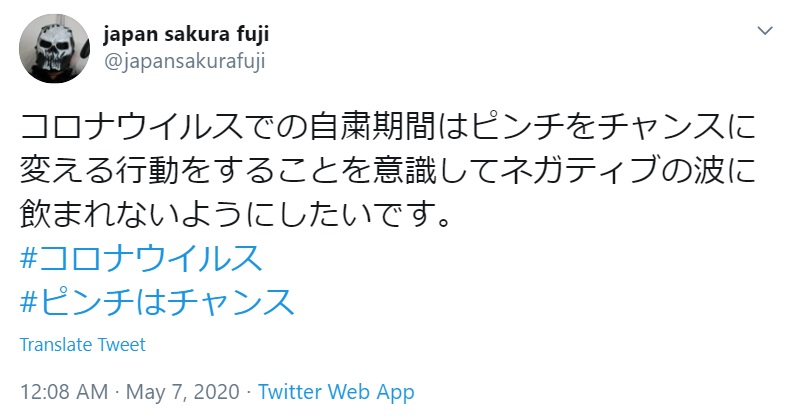Has anybody else fallen into the deepest wormholes of the internet lately? With more time on our ends (enough to go stir crazy), social media has played a significant role in expressing our frustrations, sadness and even happiness during this isolation period created by the coronavirus pandemic.
Japanese Twitter users, like many around the globe, have been sharing their thoughts on this radical lifestyle change and expressing them in under 280 characters along with some pretty revealing hashtags. Here are a few hashtags that have made the trending list over the past weeks – plus a few tips on how to use them.
#StayHome
Ever wondered how Twitter’s #StayHome🏠 hashtag translates into Japanese? Look no further. Despite the English version of the hashtag being quite popular among Japanee Twitter users, #家で過ごそう (read ie de sugosou) is another one you will see frequently. The expression is somewhat softer than its English counterpart, replacing “stay” with “spend time,” or 過ごす (read sugosu) in Japanese. It’s probably the most versatile hashtag on this list and the easiest to add to any tweet.
#CoronaCalamity
It’s no secret that this outbreak is devastating on levels we might not yet understand. In the past month or so, social distancing along with every change that comes with it has brought its own set of problems. Used alone, the kanji 禍 is read ka and translates to disaster or calamity. It is used as a suffix here, which gives us #コロナ禍 (korona ka), or “corona calamity.” While it is a relatively new way to refer to the pandemic in Japanese news and often used to discuss hard topics, some users are also trying to highlight the surprisingly good things, even if as simple as secretly feeding your cat a treat during an online meeting:
#FightCOVID19
“Fight” is undoubtedly one of the most powerful words during this period. No matter where you are in the world, you are certainly being told to fight the virus in any capacity. The closest phrase that expresses that emotion is #コロナに負けるな (read korona ni makeruna). Instead of using the verb “to fight,” this hashtag uses the negative conjugation of “to lose against” (負ける, read makeru). Its literal translation would be something along the lines of “don’t lose to corona.” It sounds a bit aggressive, perhaps, but the intention is good and ultimately, this hashtag is to encourage others to be careful and mindful.
https://twitter.com/admasdiary/status/1259326847940096000
#CoronaFatigue
Coronavirus-related news, if consumed excessively, can be overwhelming. #コロナ疲れ (read korona tsukare) is used to describe exactly that: corona fatigue. The hashtag reveals not only the frustrations or irritations of those that might’ve have grown tired of any uncertainty related to the pandemic, but can also be a great source of distraction and inspiration on how you can distance yourself from the news, be it by indulging in a relaxing evening or adorable dog videos.
#QuarantineLife
“Quarantine” is another word that has been thrown around quite a bit in the last few months, and is often used incorrectly. Social media users instead strictly depend on the word “self-restraint,” 自粛 (read jishuku) in Japanese, though it’s used much like we would use “self-isolation” in English. Combined with 生活 (read seikatsu) which means “life” #自粛生活 can be used to describe anything that has to do with staying at home or practising social distancing, from how you are staying in to what you are doing to get your fix of vitamin D safely.
#QuarantineFat
You might already be familiar with the expression “holiday weight,” some of us use around Thanksgiving and Christmas in North America and New Year’s Eve in Japan. With the change to remote working, many have been guilty of snacking or opting for take-out more than usual, which might’ve led to a slight weight gain. This is exactly the feeling conveyed through #コロナ太り, read korona futori, the latter half signifying “fat.”
#ActiveOpportunity
Ending on an optimistic note, while the situation has been difficult for some and dire for many more, there are those who see this pandemic as a unique opportunity. Whether it’s making your home cozier, learning a new skill or reevaluating your priorities, there can be positive outcomes to the outbreak, too. #ピンチはチャンス (read pinchi wa chansu) translates to “a tricky situation is a chance,” or, for a more dramatic effect, “seize the opportunity.” If you find yourself making the best of social distancing, this is the hashtag you should use to share:












